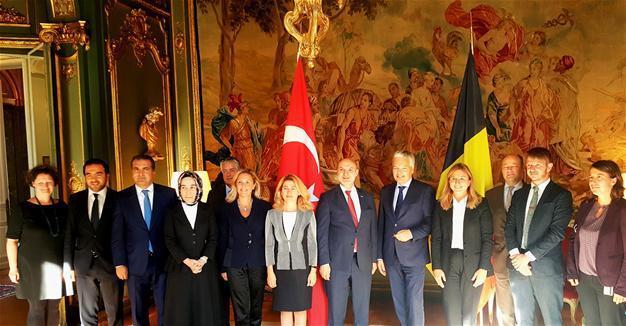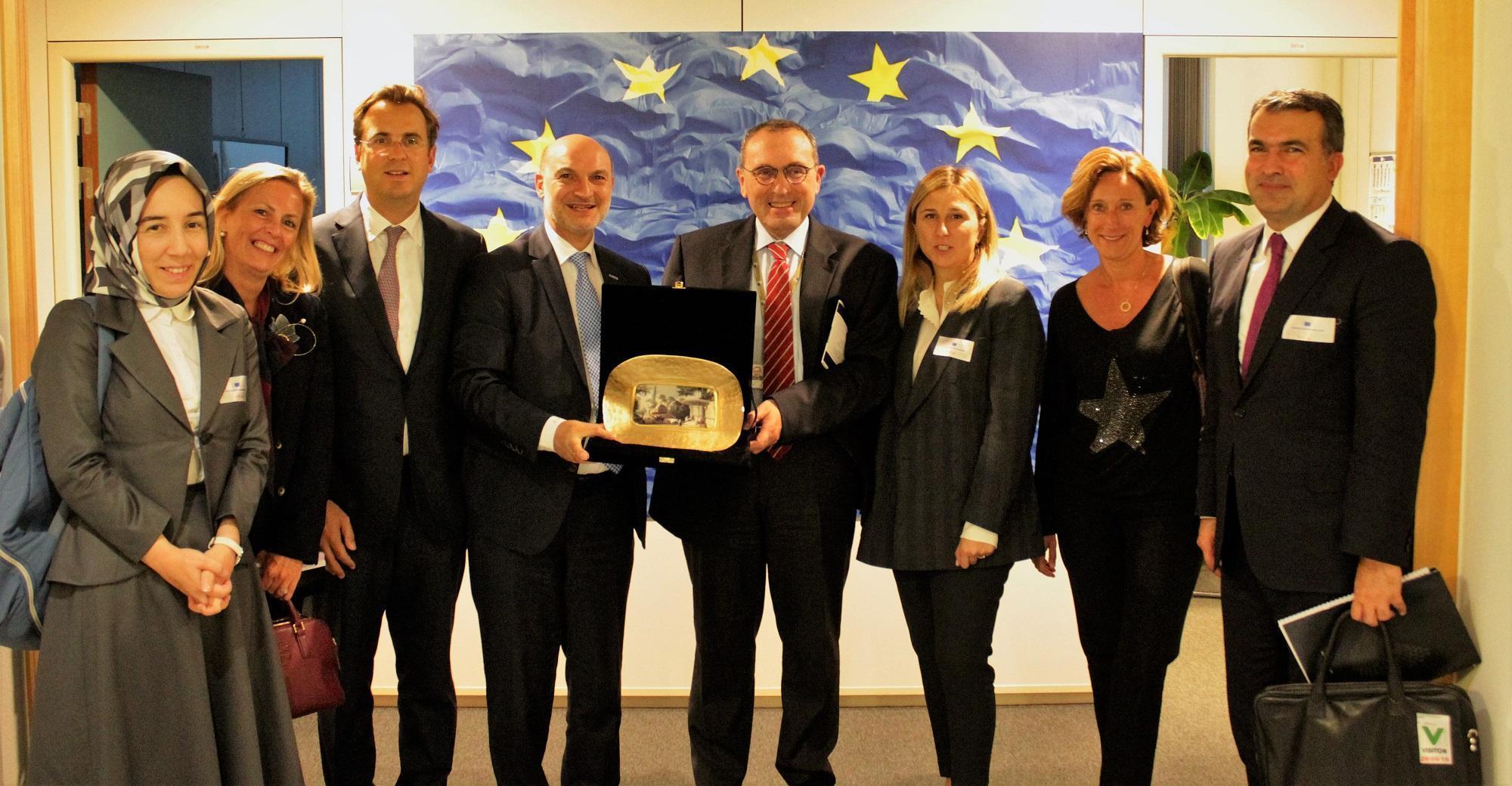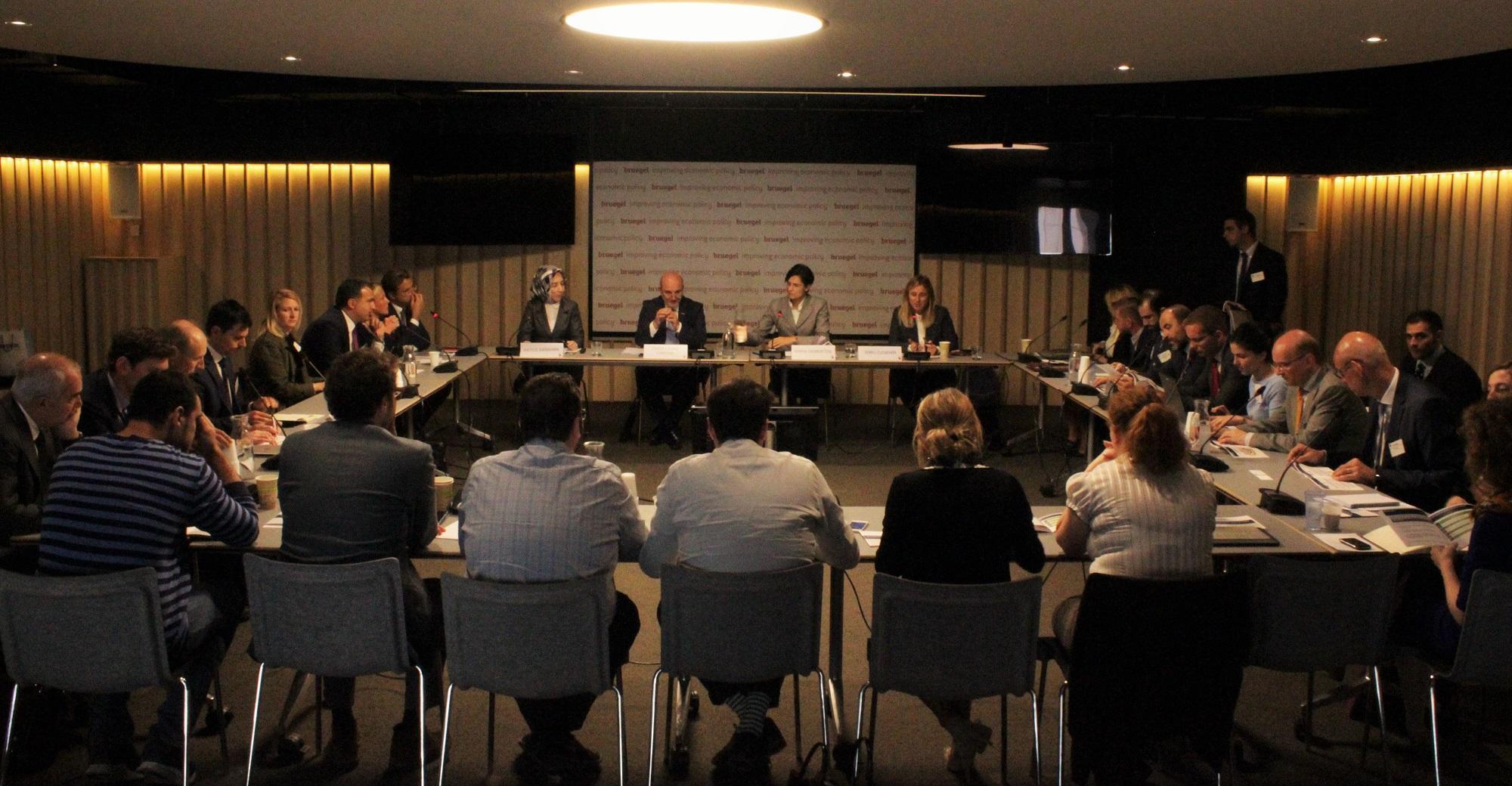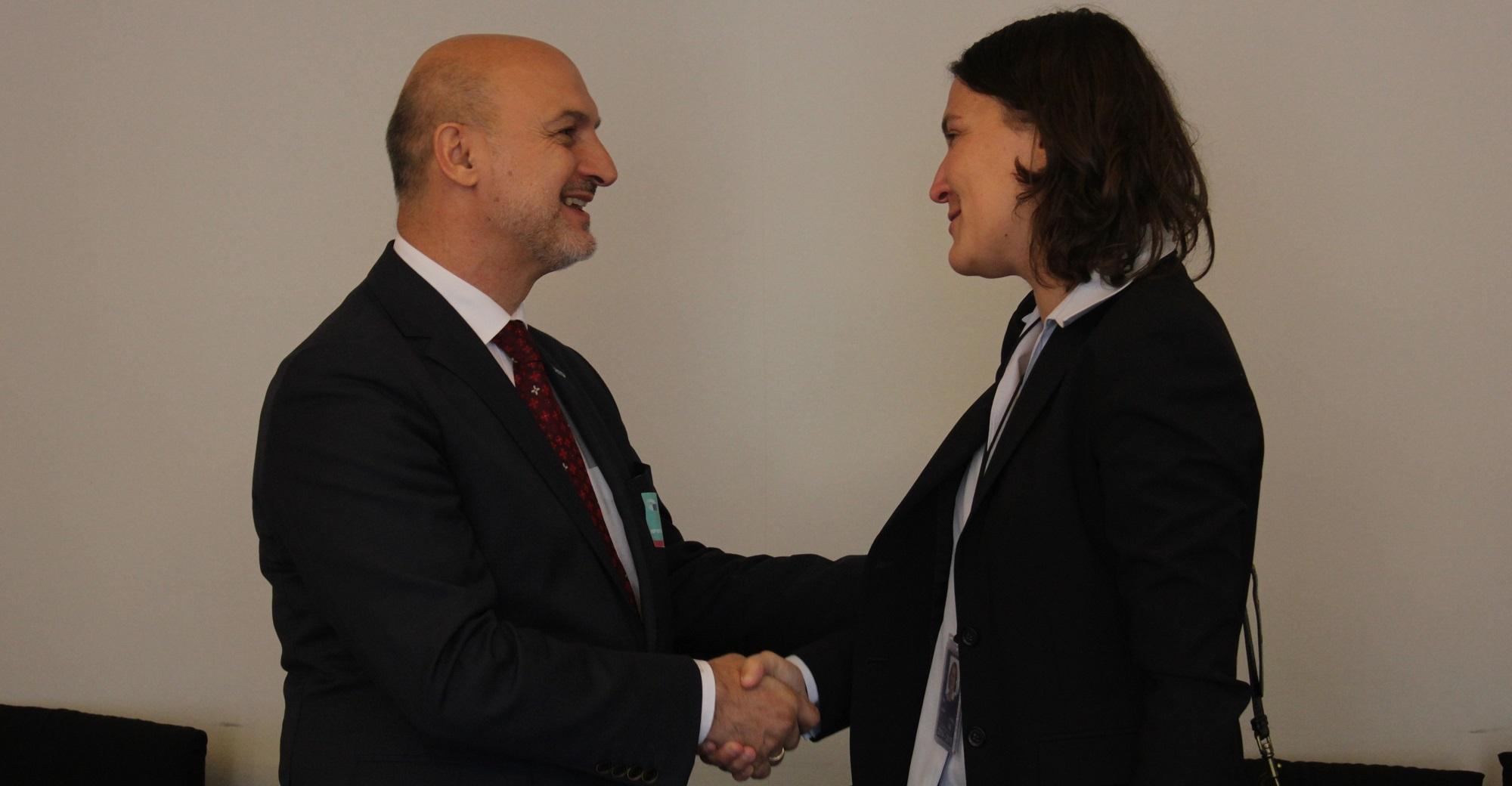DEİK intensifies efforts in Brussels following the failed coup attempt
BRUSSELS

DEİK has intensified its lobbying activities in Brussels in the aftermath of the failed coup attempt. A delegation led by DEİK President Ömer Cihad Vardan, accompanied by DEİK’s Communication Committee Members Ebru Özdemir, Murat Özyeğin, Özlem Gökçe, Hatice Karahan and YASED’s Secretary General Özlem Özyiğit visited EU’s political heart on 26-28 Sept., in order to inform and have an exchange of views with EU and Belgian officials. The exchange of views has focused on the state of play of the Turkish economy after the failed coup attempt, the political situation as well as the way forward.
DEİK’s Delegation hold meetings with senior officials of the European Commission, the European Parliament and the European External Action Services (EEAS). The group met with MEPs Kati Piri, Parliament’s Turkey Rapporteur on Turkey as well as Marietje Schaake. Two separate roundtable discussions have been organized, one with Bruegel, one of world’s leading economic think-tank; the other at the European Parliament in cooperation with ‘Friends of Turkey Group’ in the European Parliament. The Delegation also came together with Didier Reynders, Belgian Deputy Prime Minister and Minister of Foreign Affairs, as well as with representatives of Belgian business circles.
On contacts in Brussels DEİK’s Vardan said: “Last year we left behind 10th year of accession negotiations to the EU. Turkey’s accession process to the EU is in limbo, with only 16 of the 35 chapters of the acquis that require negotiations have been opened and just one provisionally closed. Unfortunately the pace of accession negotiations is not satisfying. Our citizens are still not granted with visa-free travel and there are urgent issues that require solution on Turkey-EU agenda such as the potential revision and update on 20-years old Customs Union or the Cyprus problem... Our 3-days long visit to Brussels was mainly to discuss the issues on Turkey-EU agenda and exchange of views from a business perspective. We also had the chance to talk on the state of play of the Turkish economy after the failed coup attempt”. Reminding that Turkish business community has always been behind Turkey’s EU membership President Vardan said: “DEİK has 37 Business Councils across Europe, that includes non-EU member countries as well. We as DEİK do follow closely issues such as, Turkey-EU High Level Economic Dialogue, the revision of the Customs Union and visa issue especially from the business perspective”.

Chair at DEİK’s Communication Committee Ebru Özdemir highlights the importance of sustainable communication in Europe, especially following the coup attempt: “the mission of DEİK’s Communication Committee is to counter misinformation abroad with regards to the coup attempt. The Committee has already planned to run similar visits to European capitals and meet with think-tanks and business representatives. I believe it is really important to establish a long-lasting and sustainable communication with Europe”.
Murat Özyeğin, Chair at DEİK/Turkey-the Netherlands Business Council said: “Brussels seems to be satisfied with the unity which emerged following the July 15 failed coup attempt and they want this atmosphere to continue”. Özlem Gökçe, Chair at DEİK/Turkey-Belgium Business Council points to the importance of economic relations between Turkey and the EU: “Obviously business communities on both side ask for more enhanced economic ties between Turkey and the EU. Partnerships on third countries show a great potential on that”. Hatice Karahan, DEİK’s Advisor and Member of the Committee says: “Moody’s decision to downgrade Turkey’s credit rating was one of the most popular questions we have faced during our visit to Brussels. We tried to explain that to downgrade to a speculative level also contains speculation within itself”. Özlem Özyiğit, Secretary General at YASED adds: “we tried to explain that the economic reform agenda in Turkey still viable in order to secure foreign investors’ confidence to Turkey”.

DEİK’s recent work on EU is not only limited to Brussels visit too. DEİK’s President and Board Members also participated to the luncheon organized in Ankara by the Slovak Embassy to Turkey, holding the European Council Term Presidency on Sept. 29. The luncheon brought together 27 Ambassadors of EU Member States with DEİK’s Delegation. On Oct. 4, DEİK also hosted COELA (the Working Party on Enlargement and Countries Negotiating Accession to the EU) in İstanbul. Following the lunch, members of COELA came together with representatives of Turkish business community (DEİK, MÜSİAD, TİM, TÜSİAD and İKV) and discussed recent developments on Turkey-EU relations. Chair at DEİK/Turkey-Slovakia Business Council, İsmet Güral, also participated both gatherings.

 DEİK has intensified its lobbying activities in Brussels in the aftermath of the failed coup attempt. A delegation led by DEİK President Ömer Cihad Vardan, accompanied by DEİK’s Communication Committee Members Ebru Özdemir, Murat Özyeğin, Özlem Gökçe, Hatice Karahan and YASED’s Secretary General Özlem Özyiğit visited EU’s political heart on 26-28 Sept., in order to inform and have an exchange of views with EU and Belgian officials. The exchange of views has focused on the state of play of the Turkish economy after the failed coup attempt, the political situation as well as the way forward.
DEİK has intensified its lobbying activities in Brussels in the aftermath of the failed coup attempt. A delegation led by DEİK President Ömer Cihad Vardan, accompanied by DEİK’s Communication Committee Members Ebru Özdemir, Murat Özyeğin, Özlem Gökçe, Hatice Karahan and YASED’s Secretary General Özlem Özyiğit visited EU’s political heart on 26-28 Sept., in order to inform and have an exchange of views with EU and Belgian officials. The exchange of views has focused on the state of play of the Turkish economy after the failed coup attempt, the political situation as well as the way forward. 

